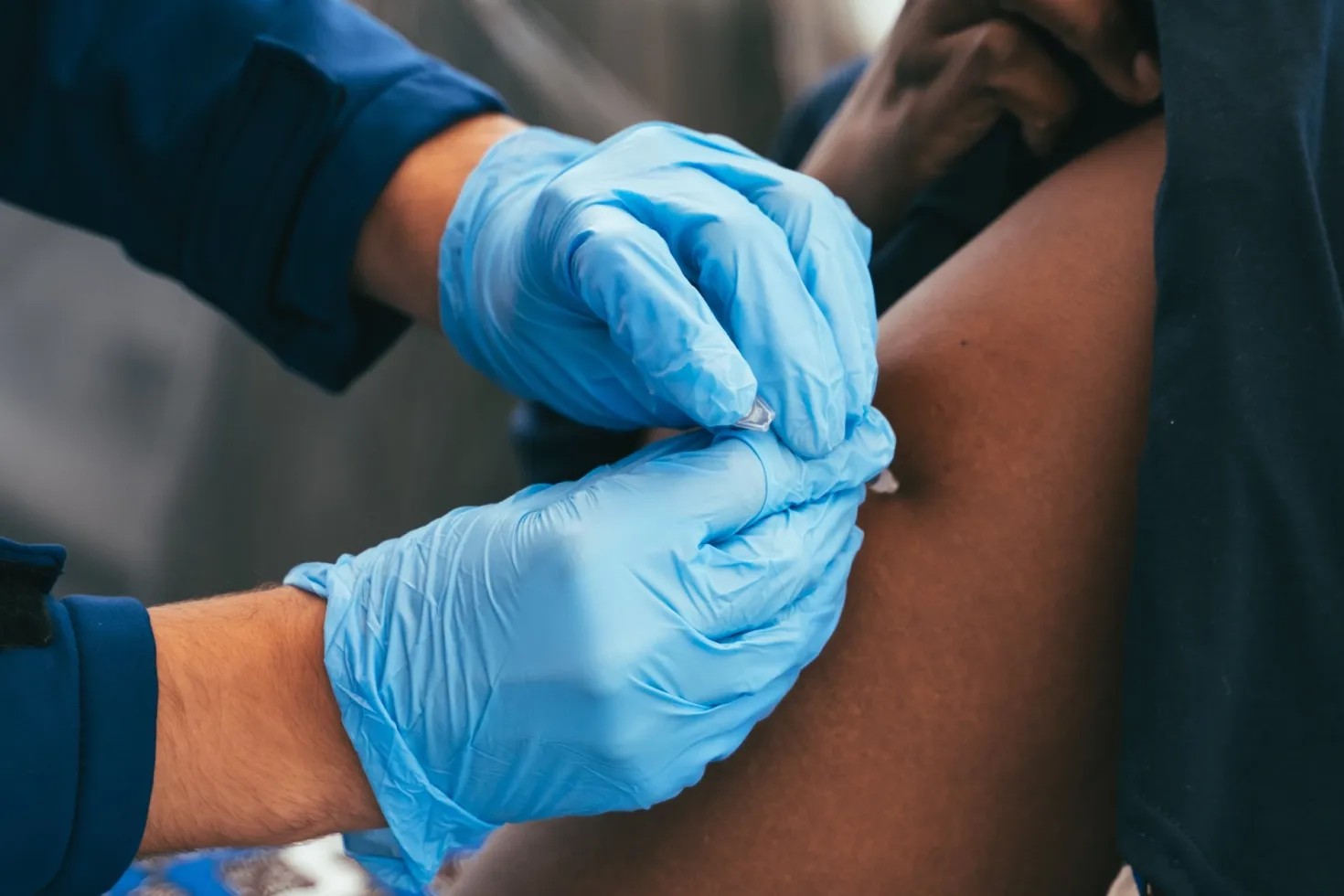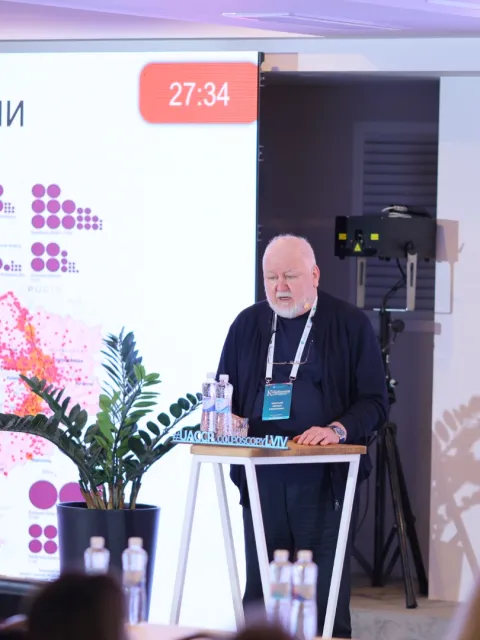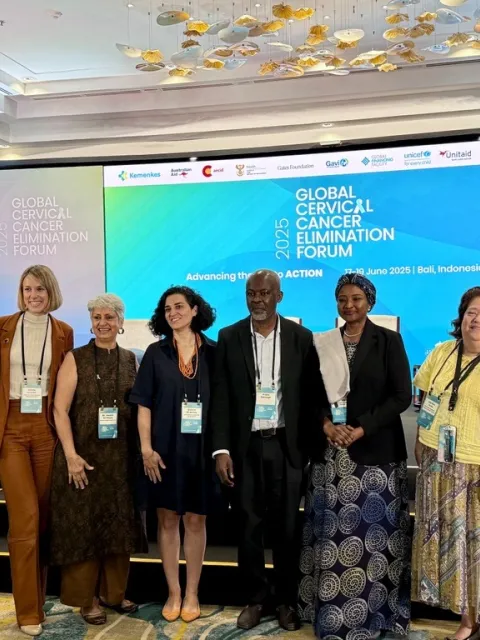Cervical cancer elimination: the ambition of a project focusing on secondary prevention

The SUCCESS ('Scale-up Cervical Cancer Elimination with Secondary prevention Strategy') project – led by Expertise France and delivered in collaboration with Jhpiego and UICC – builds on the WHO Global Strategy to Accelerate the Elimination of Cervical Cancer as a Public Health Problem to help deploy innovative solutions to support four countries in their fight against the disease.
Four countries of implementation, one vision for scaling up
Implemented in Burkina Faso, Côte d'Ivoire (Ivory Coast), Guatemala and the Philippines, the SUCCESS project aims to support the achievement of WHO targets, particularly on secondary prevention, which aims to ensure that 70% of women are screened effectively by age 35 and again by age 45, and that 90% of those with precancerous cervical lesions receive appropriate treatment.
Tailored to the context of each country of implementation, SUCCESS aims to screen 185,000 women, 40% of whom are living with HIV (WLHIV). This particular target is due to the higher prevalence of the disease among WLVHI. Compared to HIV-negative women, WLHIV are six times more likely to develop cervical cancer at a younger age due to persistent infection with the human papillomavirus, which is responsible for most cervical cancers.

To contribute to the reduction of cervical cancer morbidity and mortality rates in its implementing countries and raise awareness, the SUCCESS project deploys different strategies beyond service provision. These include the implementation of an m-health solution adapted to the countries, the training of government authorities in the use of the costing tool developed by the WHO, the C4P, and the outreach of activities with a regional scope. The C4P tool will allow each country to evaluate the costs of implementing a cervical cancer control program and thus authorise coverage by universal health coverage (UHC).
M-Health technology to optimise patient monitoring
Following the recommendations of the second edition of the WHO Guidelines for screening and treatment of cervical pre-cancer lesions for cervical cancer prevention, the SUCCESS project aims to introduce new technologies for screening, treatment, and follow-up. For example, HPV testing, a molecular biological detection method, is used as the first primary screening test rather than visual inspection with acetic acid (VIA) or cytology. The treatment of precancerous lesions is done by thermo-coagulation, a more portable technology and less expensive in the long run.
SUCCESS also supports countries in optimising patient follow-up through the deployment of appropriate m-health solutions. While paper-based registers are still widely used, the project aims to introduce digital registers. These allow for creating a single patient record that health providers can refer to during consultations and by laboratory technicians during the analysis of screening tests. For example, in Burkina Faso and Côte d'Ivoire, this solution will improve patient follow-up by sending SMS messages to announce the availability of results or to remind patients of an appointment. One of the objectives of the SUCCESS' m-health strategy is to limit the number of patients lost to follow-up and more easily track a patient's progress, particularly in the event of a transfer from one health centre to another.
Deployed in each of the countries of implementation in close collaboration with the Ministry of Health, and more specifically the Information and Technology Directorate, these solutions are adapted to the various national systems already in place to ensure interoperability, a crucial factor for sustainability.
Cervical cancer control program funding, a significant component of scale-up
In addition to the services offered by the SUCCESS project, i.e. screening and treatment of precancerous lesions, SUCCESS is deploying a set of activities on health financing, aiming to gain a better understanding of the needs of the project implementing countries. To this end, a report in collaboration with The Economist Intelligence Unit and UICC, Global action on financing cervical cancer elimination, was published earlier this year. This report explores some high-level challenges associated with financing the elimination of cervical cancer in lower resource settings. The project goes further by developing some training sessions and workshops for resource persons within the ministries in the use of C4P.
The C4P costing tool was therefore specifically developed by WHO to help governments estimate the costs of cervical cancer interventions. It provides estimates of several cost measures related to vaccination, screening, and treatment, taking into account several variables and scenarios. Ultimately, the cost estimates should enable the country where SUCCESS is implemented to better target funding needs. The experience gained by the project countries will then be shared with all the countries targeted by the regional influence component of the project.
A regional impact
To increase the outreach of specific activities and to position its implementing countries as pioneers in cervical cancer elimination, a regional influence component was designed for the project to catalyse regional dialogues and to support appropriate national technical assistance. Selected according to various criteria, including a preliminary situation analysis, the twenty countries included in the regional influence approach are spread over three continents: Africa (Benin, Togo, Senegal, Mali, Niger, Cameroon, Democratic Republic of Congo, Madagascar, Tchad, Guinea), Asia (China, Cambodia, Laos, Vietnam, Thailand) and Latin America & the Caribbean (Haiti, Mexico, Brazil, Chile, Dominican Republic).
The SUCCESS implementation in four countries provides an opportunity to share lessons learned on advocacy and demand generation, creating an enabling environment, training/mentoring, monitoring and evaluation, and costing and resource mobilization. This regional influence component will also share operational experience to implement new technologies and an integrated service delivery model for cervical cancer screening and precancer treatment. The regional approach aims to facilitate collaboration between countries to maximise impact in each region.
Funded by Unitaid, the SUCCESS project is implemented by Expertise France, in collaboration with a consortium with experience and expertise in cervical cancer prevention and control, Jhpiego and UICC.
Last update
Sunday 15 January 2023Share this page


